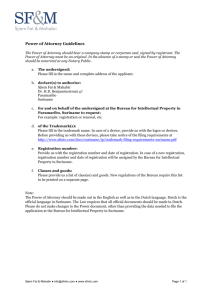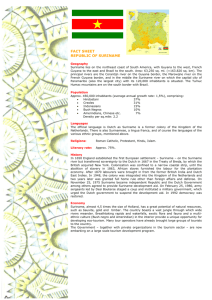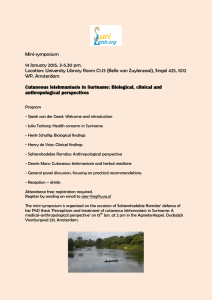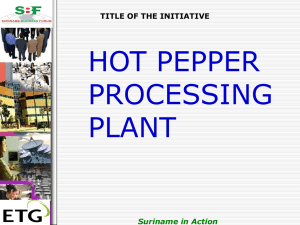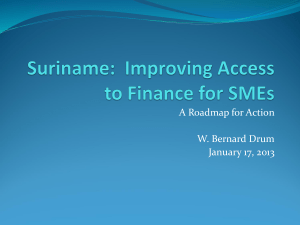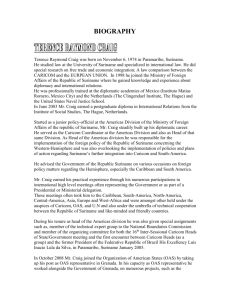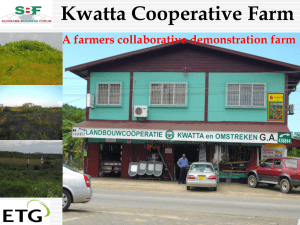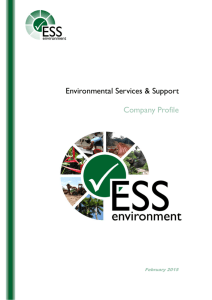Operation-Give-a-Pair-of-Pants (GAPP)
advertisement
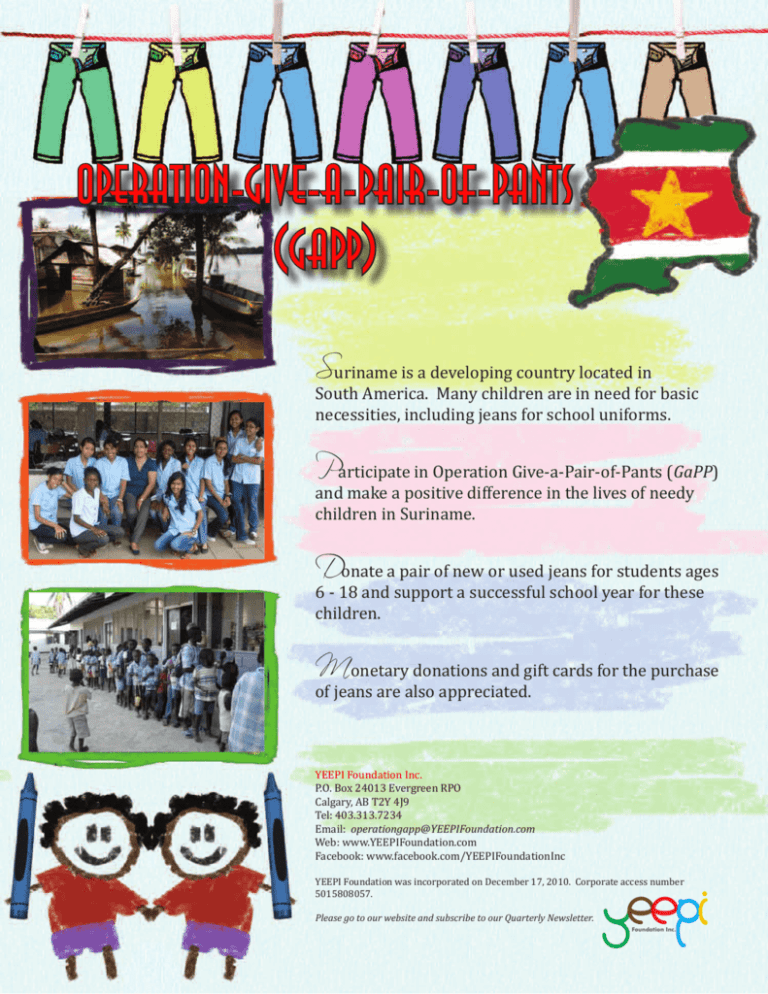
Operation-Give-a-Pair-of-Pants (GAPP) Suriname is a developing country located in South America. Many children are in need for basic necessities, including jeans for school uniforms. Participate in Operation Give-a-Pair-of-Pants (GaPP) and make a positive difference in the lives of needy children in Suriname. Donate a pair of new or used jeans for students ages 6 - 18 and support a successful school year for these children. Monetary donations and gift cards for the purchase of jeans are also appreciated. YEEPI Foundation Inc. P.O. Box 24013 Evergreen RPO Calgary, AB T2Y 4J9 Tel: 403.313.7234 Email: operationgapp@YEEPIFoundation.com Web: www.YEEPIFoundation.com Facebook: www.facebook.com/YEEPIFoundationInc YEEPI Foundation was incorporated on December 17, 2010. Corporate access number 5015808057. Please go to our website and subscribe to our Quarterly Newsletter. Foundation Inc. HISTORY Suriname, formerly Dutch Guyana, is located on the Caribbean coast of South America, between Guyana, French Guyana, Brazil and the Atlantic Ocean. Suriname is covered by large areas of biological diverse, tropical forest with some areas of savanna. Suriname has a small population of about 400,000 people. The official language is Dutch, but many other languages are also spoken. Most Surinamese, about 85 per cent, live in the coastal area, and almost all of them in Paramaribo, the capital of Suriname. The forest is occupied by Maroons and Amerindians who live scattered along its major rivers. The northern coastal plain is farmed, mined and logged, and the area along most rivers is heavily used for subsistence agriculture in the interior. For over 2 centuries Suriname was colonized by the Netherlands. Although Holland forced independence upon Suriname in 1975, the bond between Suriname and the Netherlands remains strong. As a result, The Netherlands, rather than any neighboring country, is still Suriname’s largest trading partner. Suriname is dependent upon mining and foreign aid for foreign exchange. About 400,000 people of Surinamese descent live in the Netherlands. These people informally contribute a large proportion of Suriname’s foreign exchange every year, and their wealth, knowledge and connections are a valuable resource for Suriname. THE MAROONS The Maroons are the descendants of runaway slaves brought as plantation laborers from Africa to Suriname, starting in the last half of the seventeenth century. The ancestors of the major Maroon tribes escaped from the plantations of coastal Suriname to the forests of the interior in the late seventeenth and early eighteenth centuries. There they developed distinctive societies reflecting a blending and adaptation to local conditions of various African sociocultural patterns, and incorporating strong Amerindian influences in their material culture -- e.g. horticultural practices, hunting and fishing techniques, crafts such as basketry, the use of therapeutic plants, and so forth. After a half century of guerrilla warfare against colonial and European troops, the Maroons signed treaties with the Dutch colonial government in the 1760s, enabling them to live a virtually independent existence until the past few decades. For the most part, they live along the rivers of the interior of Suriname. However, growing numbers are now living in and around Paramaribo, and they also expanded eastward into adjacent French Guiana. The Maroons could be divided into two main groups on the basis of cultural and linguistic differences, as well as location: (1) the Eastern Tribes, consisting of the Ndyuka, the Aluku, the Boni, and the Paamaka; and (2) the Central Tribes, consisting of the Saamaka, the Matawai, and the Kwinti. The Ndyuka and Saamaka are the largest tribes. Aside from Dutch, three main creole languages are spoken in Suriname: (1) Sranan (Sranan Tongo, Taki-Taki), which was once the language of the plantation slaves and is now the “national language” of Suriname, spoken throughout the country as a lingua franca; (2) Ndyuka, spoken by the Ndyuka, Aluku, and Paamaka; and (3) Saamaka, spoken by the Saamaka and Matawai. OPERATION GIVE-A-PAIR-OF-PANTS In 2009, before it was incorporated, YEEPI carried out a very successful Operation Givea-Bag (GaB), which provided students in three Maroon villages backpacks and school supplies. Additionally, YEEPI supplied children in the Pediatric section of s‘Lands Hospital and two daycares in Suriname with pyjamas, shoes and toys. Following on this success, in 2011, YEEPI is implementing Operation Give-a-Pair-of-Pants (GaPP), which is an extension of Operation GaB. The purpose of this project is to provide students in the poor areas in Suriname with jeans and other necessities. Jeans are part of the school uniform in Suriname and are usually a significant burden on the parent’s annual budget.
